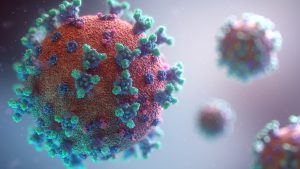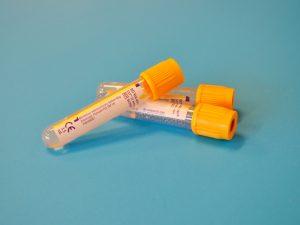Sexually Transmitted Infections (STIs) are diseases that can spread from one person to another through intimate contact. When a pregnant woman has an STI, it can cause problems for both her and her baby. This article will help you understand the risks and how to keep your baby safe.
STI and Pregnancy
When a woman is pregnant, she must be extra careful about her health. STIs and pregnancy can be a dangerous combination. Here are some common STIs and how they can affect pregnancy:
- Chlamydia: This STI can cause early birth, eye infections, and pneumonia in newborns. It can also lead to infections in the mother’s reproductive system.
- Gonorrhea: If untreated, it can lead to blindness, joint infections, or blood infections in the baby. It can also cause serious health problems for the mother.
- Syphilis: This STI can pass to the baby and cause stillbirth or birth defects. It can also make the baby very sick after birth.
- HIV: This virus can be passed to the baby during pregnancy, birth, or breastfeeding. It weakens the immune system, making it hard for the body to fight infections.
- Genital Herpes: Herpes can be passed to the baby during delivery, causing severe brain damage, blindness, or even death.
How Does an STD Affect Pregnancy?
STDs, or sexually transmitted diseases, can have serious effects on pregnancy. Here are some ways how does an STD affect pregnancy:
- Early Birth: STDs can cause the baby to be born too soon, which can lead to health problems.
- Low Birth Weight: Babies born to mothers with STDs may be smaller than normal.
- Infections: STDs can cause infections in the baby’s eyes, lungs, or other body parts.
- Birth Defects: Some STDs can lead to birth defects, affecting the baby’s growth and development.
- Stillbirth: In severe cases, untreated STDs can lead to the baby being born dead.
Protecting Your Baby from STIs
To keep your baby safe from STIs, follow these steps:
- Get Tested: Make sure to get tested for STIs before and during pregnancy. Early detection can help prevent complications.
- Use Protection: Always use condoms during sex to reduce the risk of getting an STI.
- Limit Partners: Having fewer sexual partners lowers the chances of getting an STI.
- Communicate: Talk to your partner about STIs and make sure they get tested too.
- Follow Doctor’s Advice: If you have an STI, follow your doctor’s treatment plan carefully to protect your baby.
Popular Medications for STIs
Here are some medications that can help treat STIs during pregnancy:
- Azithromycin: Used to treat chlamydia and other bacterial infections.
- Ceftriaxone: Effective for treating gonorrhea.
- Penicillin: The best treatment for syphilis.
- Antiretroviral Drugs: Help manage HIV and reduce the risk of passing it to the baby.
- Acyclovir: Used to treat genital herpes and reduce the risk of passing it to the baby during birth.
STIs can pose significant risks during pregnancy, but there are steps you can take to protect yourself and your baby. Regular testing, using protection, and following your doctor’s advice are key to a healthy pregnancy. If you have any concerns or symptoms, don’t hesitate to contact your healthcare provider. Keeping your baby safe starts with taking care of your health.
FAQs
- Can you get pregnant if you have an STI?
Yes, but it’s important to get treatment to protect both you and your baby. - How are STIs treated during pregnancy?
Treatment depends on the type of STI. Your doctor will prescribe safe medications for you and your baby. - Can STIs harm the baby?
Yes, STIs can cause serious health problems for the baby, including infections, low birth weight, and birth defects. - Is it safe to breastfeed if I have an STI?
Some STIs can be passed through breast milk. Talk to your doctor to understand the risks and get advice on breastfeeding safely. - How can I prevent STIs during pregnancy?
Use condoms, get tested regularly, limit sexual partners, and ensure your partner gets tested too.



